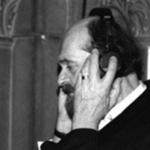
Arvo Pärt Tour Dates and Upcoming Concerts
Welcome to the official artist page for Arvo Pärt – your premier destination for
the latest concert tickets, tour announcements, and exclusive shows near you. Dive into
the music, explore the artist’s reviews and photos, and never miss another concert
moment. Stay updated, stay connected, and be the first to grab tickets for an
unforgettable musical experience.
On tour
Yes
Followers
47,835
Concerts
See all upcoming events on Bandsintown and get tickets.
About Arvo Pärt
Arvo Pärt (born 11 September 1935 in Paide) is an Estonian composer, often identified with the school of minimalism and more specifically, that of "holy minimalism" or "sacred minimalism". He is considered a pioneer of this style, along with contemporaries Henryk Górecki and John Tavener.
In these days Arvo Pärt is best known for his choral works, which he started to produce in the 80s, after his emigration from former Soviet Union to Germany, Berlin. Before that he had written his most recognized works from the 70s - Fratres (premiered by Gidon Kremer in version for violin and piano. In original "Fratres" score Pärt only indicated the pitch and rhythm, the choice of instruments is left to the performers), Cantus in memoriam Benjamin Briten and Tabula Rasa. In 1978 Pärt composed Spiegel im Spiegel (Mirror in Mirror).
Spiegel im Spiegel is recognized as a work of his own composition style called "tintinnabuli" (from the Latin word "tinnitus" - tinkling). Melodic voice of violin conducts a dialogue with the "tinkly" voice of the piano in this piece. There are several versions of "Spiegel im Spiegel" - it can be performed (from the mentioned above) with the viola or cello and even with the French horn or clarinet. Spiegel im Spiegel was used many times in film (movie) soundtracks, e. g. by directors Jean-Luc Godard, Guy Ritchie and Mike Nichols.
Arvo Pärt's oeuvre is generally divided into two periods.
His early works ranged from rather severe neo-classical styles influenced by Shostakovich, Prokofiev and Bartók. He then began to compose using Schoenberg's twelve-tone technique and serialism. This, however, not only earned the ire of the Soviet establishment, but also proved to be a creative dead-end. When early works were banned by Soviet censors, Pärt entered the first of several periods of contemplative silence, during which he studied choral music from the 14th to 16th centuries.[1] In this context, Pärt's biographer, Paul Hillier, observed that "... he had reached a position of complete despair in which the composition of music appeared to be the most futile of gestures, and he lacked the musical faith and will-power to write even a single note."
The spirit of early European polyphony informed the composition of Pärt's transitional Third Symphony (1971); and thereafter, he immersed himself in early music, re-investigating the roots of western music. He studied plainsong, Gregorian chant, and the emergence of polyphony in the Renaissance. The music that began to emerge after this period was radically different. This period of new compositions included Fratres, Cantus In Memoriam Benjamin Britten, and Tabula Rasa.[1]
Pärt describes it as tintinnabuli — like the ringing of bells. The music is characterised by simple harmonies, often single unadorned notes, or triad chords which form the basis of western harmony. These are reminiscent of ringing bells. Tintinnabuli works are rhythmically simple, and do not change tempo. The influence of early music is clear. Another characteristic of Pärt's later works is that they are frequently settings for sacred texts, although he mostly chooses Latin or the Church Slavonic language used in Orthodox liturgy instead of his native Estonian language. Large-scale works inspired by religious texts include St. John Passion, Te Deum, and Litany. Choral works from this period include Magnificat and The Beatitudes.[1]
It is for these latter works that Pärt is best known; and he is perhaps unusual for a modern composer in that he has become very popular in his own lifetime, e.g.,
"Even in Estonia, Arvo was getting the same feeling that we were all getting. [...] I love his music, and I love the fact that he is such a brave, talented man. [...] He's completely out of step with the zeitgeist and yet he's enormously popular, which is so inspiring. His music fulfills a deep human need that has nothing to do with fashion." —Steve Reich
Arvo Pärt's music came to public attention in the West, largely thanks to Manfred Eicher who recorded several of Pärt's compositions for ECM Records starting in 1984.
Pärt has said that his music is similar to light going through a prism: the music may have a slightly different meaning for each listener, thus creating a spectrum of musical experience, similar to the rainbow of light.
A new composition, Für [for] Lennart, written for the memory of the Estonian President Lennart Meri, was played at his funeral service on April 2, 2006.
In response to the murder of the Russian journalist Anna Politkovskaya in Moscow on October 7 2006, Pärt declared that all his works performed in 2006-2007 would be in commemoration of her death:
"Anna Politkovskaya staked her entire talent, energy and – in the end – even her life on saving people who had become victims of the abuses prevailing in Russia."— Arvo Pärt
Pärt is to be honoured as the featured composer of the 2008 RTÉ Living Music Festival[2] in Dublin, Ireland. He was also recently commissioned by Louth Contemporary Music Society[3] to compose a new choral work based on St. Patricks Breastplate, to be premiered in 2008 in Louth, Ireland. The new work is to be called The Deers Cry. This is the composer's first Irish commission. The composition's debut in Drogheda and Dundalk in February 2008 represents Pärt's continuing evolution as an artist.
Pärt's music has been featured in over 50 films, from "Väike motoroller" (1962) to "Promised Land" (2004). Elements from the Cantus in Memory of Benjamin Britten was used in Léos Carax's film Les Amants du Pont-Neuf (1991); and a part of the composition was heard in Michael Moore's film Fahrenheit 9/11 while the audience confronts the aftermath of the September 11, 2001 attacks in New York City. Segments from Spiegel im Spiegel were incorporated in Mike Nichols' film version of the Pulitzer Prize-winning play Wit (2001), in the mountain climbing documentary Touching the Void (2003), in Tom Tykwer's film, Heaven (2002), and in Gus Van Sant's film Gerry (2003), which also included a small segment from Für Alina. Tabula Rasa was used in the opening scenes of the award-winning 2001 documentary War Photographer, about photojournalist James Nachtwey. Fratres for Violin and Piano was used in the soundtrack for the 2007 film There Will Be Blood.
Follow on Bandsintown
Similar Artists On Tour
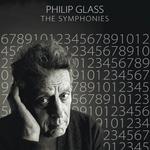
Philip Glass

Steve Reich

Max Richter

Ólafur Arnalds
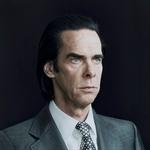
Nick Cave & The Bad Seeds

Massive Attack
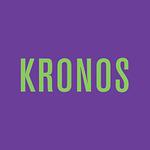
Kronos Quartet
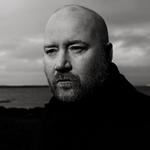
Jóhann Jóhannsson
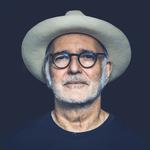
Ludovico Einaudi
Arvo Pärt Tour Cities
Frequently Asked Questions About Arvo Pärt
Concerts & Tour Date Information
Is Arvo Pärt on tour?
Yes, Arvo Pärt is currently on tour. If you’re interested in attending an upcoming
Arvo Pärt concert, make sure to grab your tickets in advance. The Arvo Pärt tour
is scheduled for 3 dates across 1 cities. Get
information on all upcoming tour dates and tickets for 2026-2027 with Hypebot.
How many upcoming tour dates is Arvo Pärt scheduled to play?
Arvo Pärt is scheduled to play 3 shows between 2026-2027. Buy
concert tickets to a nearby show through Hypebot.
When does the Arvo Pärt tour start?
Arvo Pärt’s tour starts Mar 07, 2026 and ends on Apr 29, 2026.
They will play 1 cities; their most recent concert was held in
Amsterdam at Muziekgebouw aan 't IJ and their next upcoming concert
will be in Amsterdam at Muziekgebouw aan 't IJ.